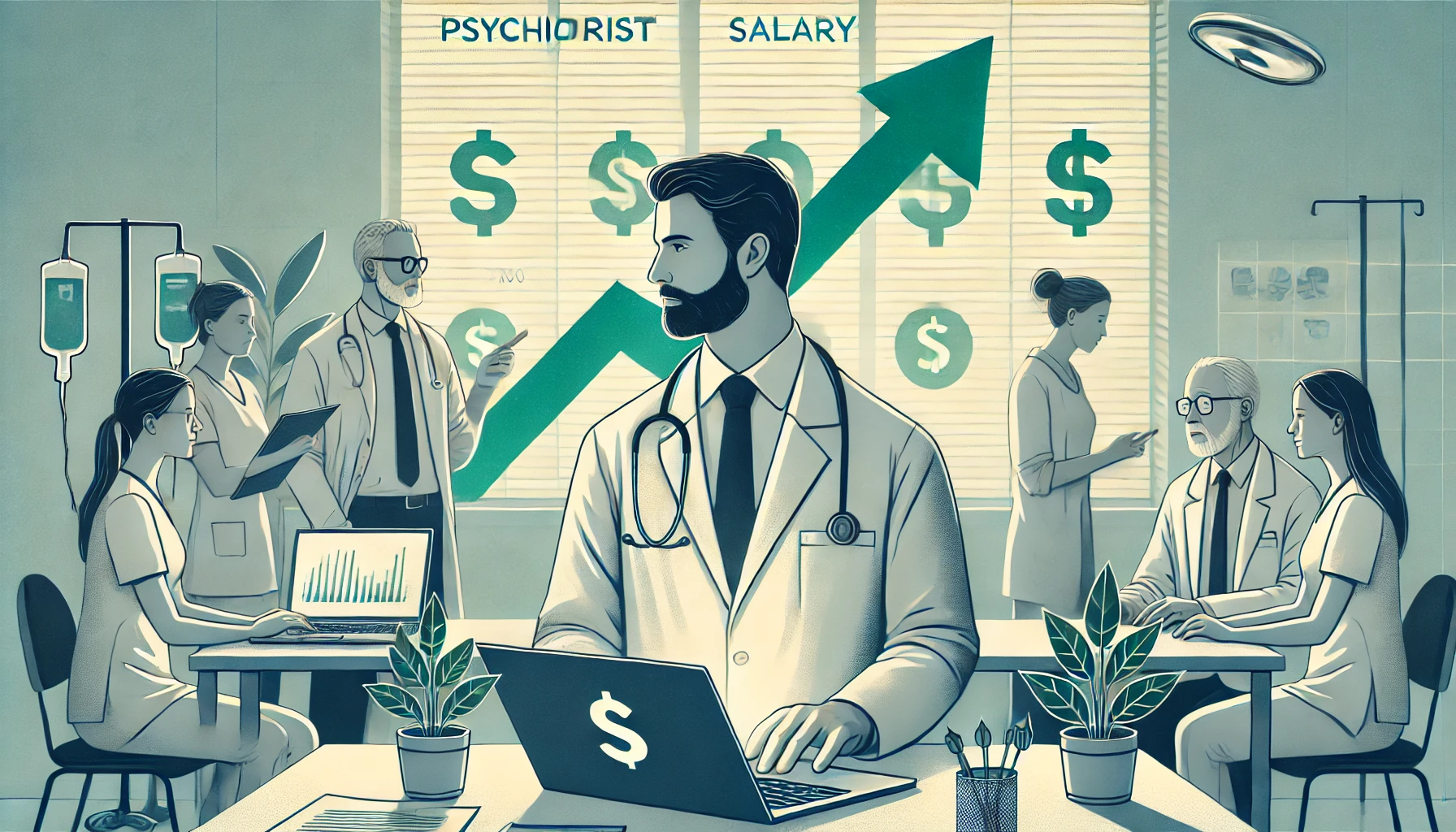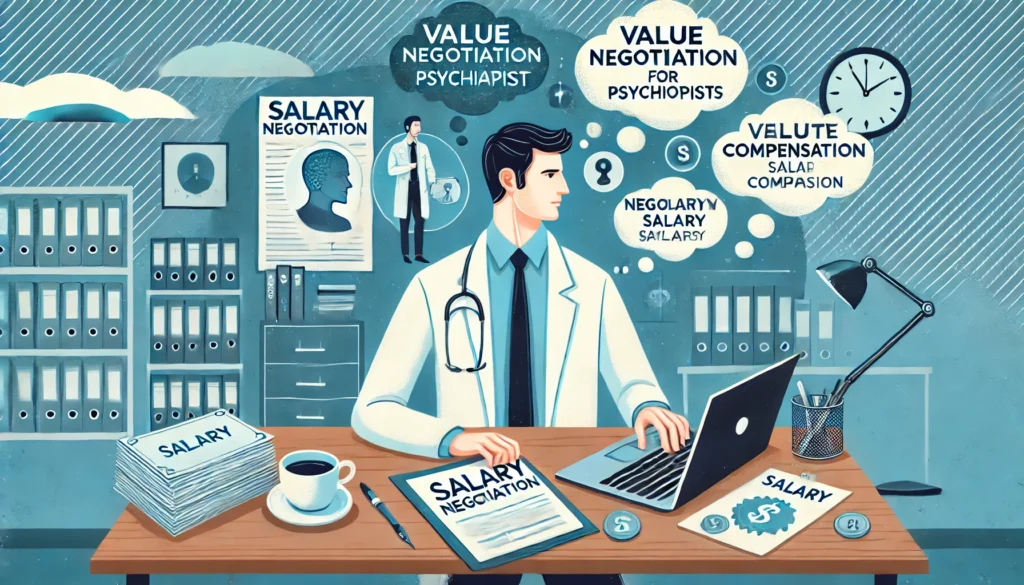Are you ready to master psychiatrist salary Discussion and ensure your earnings match your expertise?
With the ongoing mental health crisis, the demand for psychiatric services has significantly increased. According to recent reports from the APA, this demand is expected to grow in the coming years, creating opportunities for psychiatrists to leverage their expertise and negotiate better compensation.
Feeling Underpaid? Many psychiatrists report feeling under-compensated for their workload. A survey revealed that nearly 60% of psychiatrists believe they are not paid fairly for their efforts. This perception of being undervalued can lead to burnout and dissatisfaction in the profession.
1. You Deserve to be Paid What You’re Worth
Understanding your value in the job market is crucial. Psychiatrists possess specialized knowledge and skills that are in high demand. By negotiating your salary, you assert your worth in the profession and ensure that your compensation reflects your expertise.

2. Market Trends Favor Discussion
As the healthcare market evolves, so do salary expectations. Research salary benchmarks in your region and specialty to understand where you stand. Websites like Glassdoor and PayScale offer valuable insights into typical psychiatrist salaries, empowering you to negotiate effectively.
3. Knowledge is Power
Educating yourself on Discussion tactics can significantly impact your outcome. Resources like negotiation workshops, professional organizations, and mentorship will equip you with the skills to advocate for a higher salary. Additionally, understanding the terms of your employment contract can lead to more informed Discussions.
4. Highlight Your Contributions
When negotiating, it’s essential to showcase your contributions to the organization. This includes patient outcomes, community outreach, and any initiatives you have led or participated in. You strengthen your case for a salary increase by presenting concrete examples of your impact.
Key Contributions to Consider
- Patient Satisfaction: Documenting positive patient feedback can serve as a powerful tool.
- Community Involvement: Highlight any community programs you’ve participated in or led.
- Research Contributions: Include any research projects or publications that enhance your reputation in the field if applicable.

5. Consider Total Compensation Packages
Your salary is only one part of your total compensation package. Benefits such as health insurance, retirement plans, and bonuses should also be considered during the psychiatrist salary discussion. Understanding the full picture allows you to negotiate more effectively and advocate for additional benefits to enhance your overall compensation.
6. Utilize Industry Demand to Your Advantage
The mental health field is experiencing a surge in demand due to societal shifts and increased awareness of mental health issues. Leverage this demand during your Psychiatrist salary Discussion by emphasizing your ability to meet this need. Show potential employers how your skills can help them capitalize on this growing market.
To maximize your earnings as a psychiatrist, staying informed about current salary trends and opportunities in healthcare is valuable. According to recent insights on global healthcare salaries, professionals, including psychiatrists, are enhancing their earnings by leveraging knowledge of regional and specialty-based salary benchmarks. Understanding these broader trends can help you navigate negotiations more strategically.
7. Be Prepared for Counteroffers
Employers may respond to your salary request with a counteroffer. Prepare for this scenario by determining your non-negotiables and knowing when to leave. Being ready for Discussion helps you navigate discussions confidently and assertively.
Steps to Prepare for Counteroffers
- Know Your Worth: Have a clear understanding of your salary expectations.
- List Non-Negotiables: Identify what you are willing to compromise on and what you absolutely need.
- Practice Negotiation Scenarios: Role-playing with a mentor or colleague can help you prepare for various scenarios.

8. Networking Can Enhance Your Opportunities
A robust professional network can open doors to improved job prospects and salary negotiations. Attend conferences, join professional organizations, and connect with other psychiatrists. Networking provides support and can lead to job offers with better compensation packages.
Building a strong professional network is essential for career growth in healthcare. With insights from Transform Healthcare Networking, discover how effective networking can transform your career.
9. It’s Never Too Late to Negotiate
Whether you’re starting your career or are a seasoned psychiatrist, negotiating your salary is never too late. Regularly assessing your worth and seeking adjustments can lead to significant long-term benefits. Don’t hesitate to advocate for yourself—your career and financial health depend on it.
Conclusion
Negotiating your psychiatrist’s salary is not just about money but valuing your profession and ensuring your contributions are recognized. With the rising demand for mental health services, your potential to negotiate a higher salary increases. Start implementing these strategies today to advocate for your worth in the field.
For those considering career flexibility, options like locum tenens positions are becoming increasingly popular. These positions offer psychiatrists the chance to work temporarily, often with premium pay rates. This flexibility also allows for a balanced lifestyle while maximizing income potential.
Additionally, trends such as telemedicine are opening new pathways for income growth. In fact, telemedicine roles can boost salary by up to 30%, as discussed in this article on boosting telemedicine salary. Staying up-to-date on these trends and projections for medical salaries in 2025 and other U.S. medical salary trends ensures you remain competitive in the evolving job market.

FAQ Section
1. How can I determine my area’s average salary for psychiatrists?
You can research average salaries based on location and specialty using websites like Glassdoor, PayScale, and the Bureau of Labor Statistics (BLS).
2. What should I include in my Discussion conversation?
Highlight your contributions, market research, and your value to the organization. Be clear about your salary expectations and the reasons behind them.
3. How often should I negotiate my salary?
It’s advisable to reassess your salary every year, especially after major accomplishments or shifts in the market.
4. What if my employer is not open to Discussion?
If your employer hesitates about salary negotiation, explore other compensation options, like enhanced benefits or opportunities for professional development.
5. Can I negotiate my salary if I’m new to the field?
Even entry-level psychiatrists can negotiate salaries based on market research, internships, and relevant experience. Assert your value confidently, regardless of career stage.







